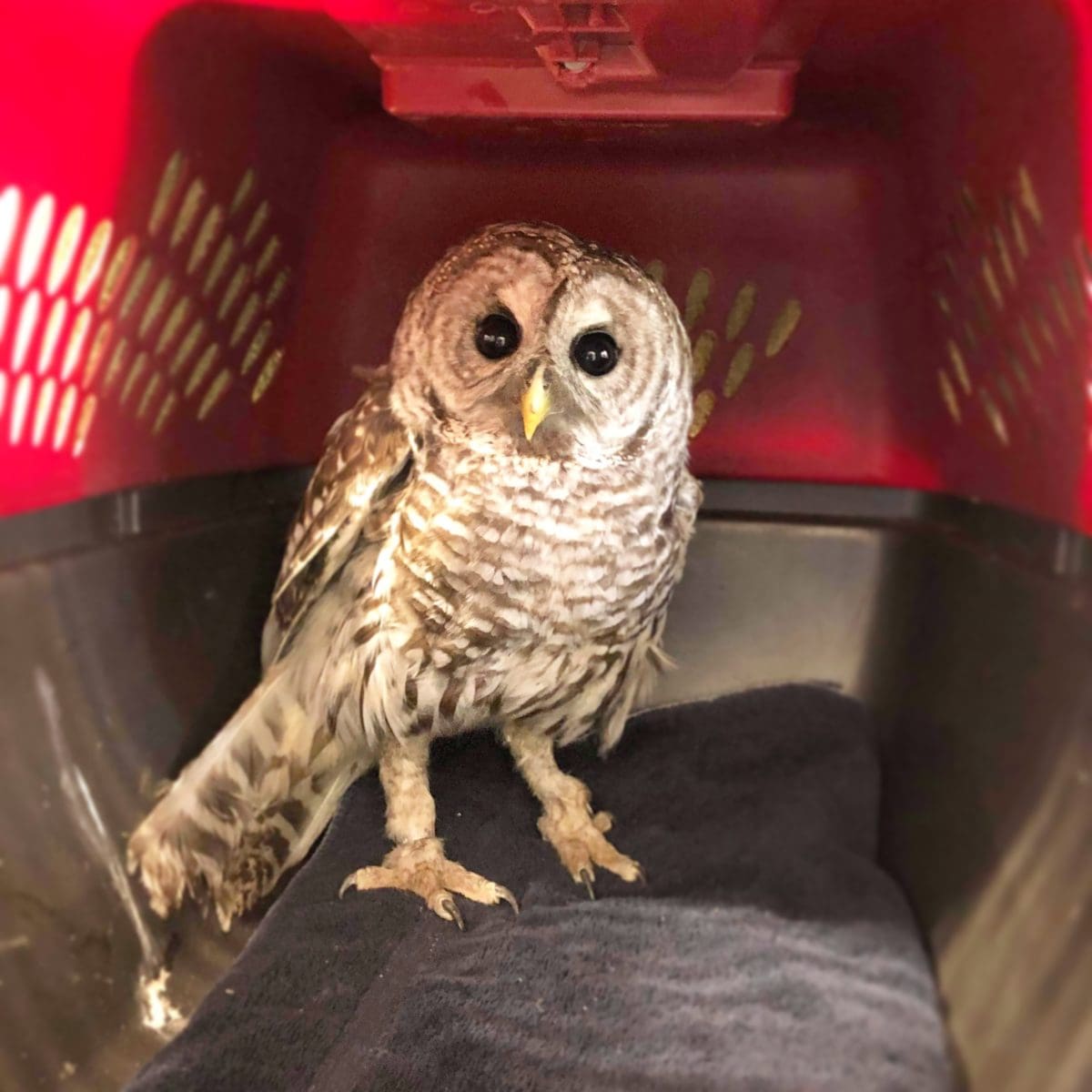Update: District of North Vancouver votes to ban rodenticides!
District of North Vancouver Council has voted to ban anticoagulant rodenticides on district-owned properties. The unanimous vote on June 15 approved Councillor Megan Curren’s proposal for a ban.
Thank you to everyone who wrote to the council and signed the petition by VHS supporter Yasmin Abidi. Yasmin raised the issue with Councillor Curren after rescuing an owl poisoned by rodenticide in the district. (Full story below.)
The vote also means that the council will petition the provincial government to ban anticoagulant rodenticides in B.C. and will communicate their harmful impacts to all residents and businesses in the district.
Update: Speak up to save owls like Lucky
Lucky the owl was lucky to survive being poisoned, twice. Most raptors aren’t so lucky.
Councillor Megan Curren of the District of North Vancouver has proposed the following recommendation, to be voted on June 15, 2020:
How you can help
Original story:
Birds and other wildlife are often the unintended victims of rodent poison
VHS supporter Yasmin Abidi helped rescue what appeared to be an injured owl last week in North Vancouver. It later emerged that the owl had been poisoned, most likely by rodent poison.
Yasmin and several other Good Samaritans found the owl in a tree near a main road, bleeding and being attacked by crows. They contacted the Orphaned Wildlife Rehabilitation Society (OWL) in Delta and protected the bird until OWL staff arrived to take it back to their clinic for examination.
The examination found that the owl had ingested rodent poison and needed immediate treatment. Nicknamed “Lucky” by Yasmin, the owl is expected to recover, thanks to her quick actions.
It also emerged that the owl had been poisoned three weeks earlier (and treated by OWL), indicating such poisonings are not uncommon.
Wildlife are often the victims of poisons used by businesses, landlords, municipalities and homeowners to control rodent populations.These “secondary poisonings” happen when birds of prey or other predators eat poisoned rodents and can cause a slow and painful death.
The BC SPCA has more information on how you can help wildlife by decreasing the amount of rat poison in the environment. If you find sick or injured wildlife you can contact one of the organizations listed by the Wildlife Rehabilitators’ Network.

